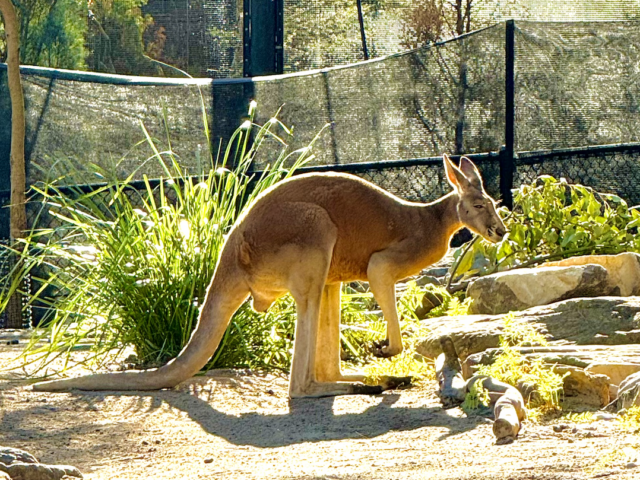Let’s get down into the nitty-gritty of being abroad. What differences are there between Australia and the United States? How is living abroad such a different lifestyle than living at home? Looking from social and academic perspectives we’re going to break down the how unique Australia can be.
Socially
Small little lifestyle differences that make Australia unique and different than other place on the globe. Australia has a multitude of different quirks that are always fun and interesting to learn about and adapt to. For starters, one of the first things you will notice going from the states to Australia is that here people drive on the left side of the road, not the right. It’s an adjustment even when you’re just sitting on the bus! One of the next biggest and noticeable changes is the seasons here and when they occur. Currently we are moving into our winter months that last from around May to August when in the U.S. it’s almost summertime. Another small difference is how Australian’s record the date, which is seen as, Day/month/year, compared to in the U.S. which is month/day/year.
Additional little things to add uniqueness to this amazing country include the entertaining slang terminology and phrase differences. Generally, to make terminology and words easier, Aussies tend to just shorten words. Here are some of my favorite examples:
G’day = Hello
Servo = Gas Station
Arvo = Afternoon
Brekkie = Breakfast
Thongs = Flip Flops
Maccas = McDonalds
Reckon = I think
Another big part of the lifestyle and culture within Australia are sports. Here people also are not very aware of American sports and teams that are currently playing. However just like in the states, the people here love a good, fun sports culture and rallying around a team, primarily for rugby league. The National Football League (NFL) is one of the biggest sports within the U.S. and the Aussie equivalent is the Australian Football League (AFL) which is a little different than rugby.

Academics
Here and back in the states, I’m a double major, studying Marine Biology and Environmental Science. Being able to study both in the states and internationally has given me such a diverse array of knowledge to build from with my bachelor’s degree.
When studying in both locations though, I can point out some major differences between the American university systems and Australia’s. Looking at some of the basics about taking classes and the general structures of courses, in the states there is a focus on papers and different assignments through a semester. On the contrary, I’ve been able to notice that here in Australia, there is a focus on understanding reality within a practical sense. It is not very heavily assignment based here, and projects are based on true work that people are doing in the field, whether that’s a presentation, case study work, research, or lab reports; there is a very practical sense in all the work being given creating taking courses in Australia to be a very hands-on learning experience. I’ve felt that this is such an amazing way to prepare for future careers and working in the field of whatever you are studying.
Here at James Cook University (JCU), and other universities across Australia the grading system works very different compared to universities in the states. I originally go to school in South Florida, where (like the rest of the US) your grades start at 100 for assignments and you can potentially lose points through grading. However, in Australia your grades begin at zero and you gain points through the work and effort put into each assignment.
Additionally, a major difference is that in Australia, obtaining a bachelor’s degree only takes three years, while it takes four years in the U.S. Specifically at JCU there is a very high concentration of marine science majors. Along with this, most of the “upper level” (junior, senior level) courses offered at JCU are field classes, where at some point (or multiple times) within the semester, you will go out into the field, whether terrestrial or aquatic, to partake in field research. This is such a unique way as an undergraduate student to have hands-on research in your potential field of study.

Overall
It’s been such an honor to be able to see and compare different cultures, lifestyles, and corners of the globe. Studying abroad has allowed me to mentally, academically, culturally, and socially diversify my brain and life in the best ways possible. Opening my mind up to so many different possibilities the world had to offer.
A final part of living in Australia, Townsville specifically, that I have grown such an appreciation for is the quick access to nature. For the most part, this country and the Aussie’s within it, have a more sustainability and environmentally focused mindset. With easy access to nature and wildlife all around me, it is so easy to take for granted the ecosystems around us; and Australian people work to never forget the amazing land, and ocean that surrounds them. It’s truly amazing to be surrounded in a country that puts a large amount of focus and efforts towards protecting their Australian land and wildlife.
Studying abroad gives you the opportunity to be around a plentiful number of professionals within different fields to learn more about what they are doing – so many resources to meet and look into future potentials for your life. There’s a multitude of different resources, through TEAN and host universities within Australia, that make studying abroad truly the best decision ever!

Alexandra Polk, University of South Florida, is studying abroad in Australia with TEAN.







